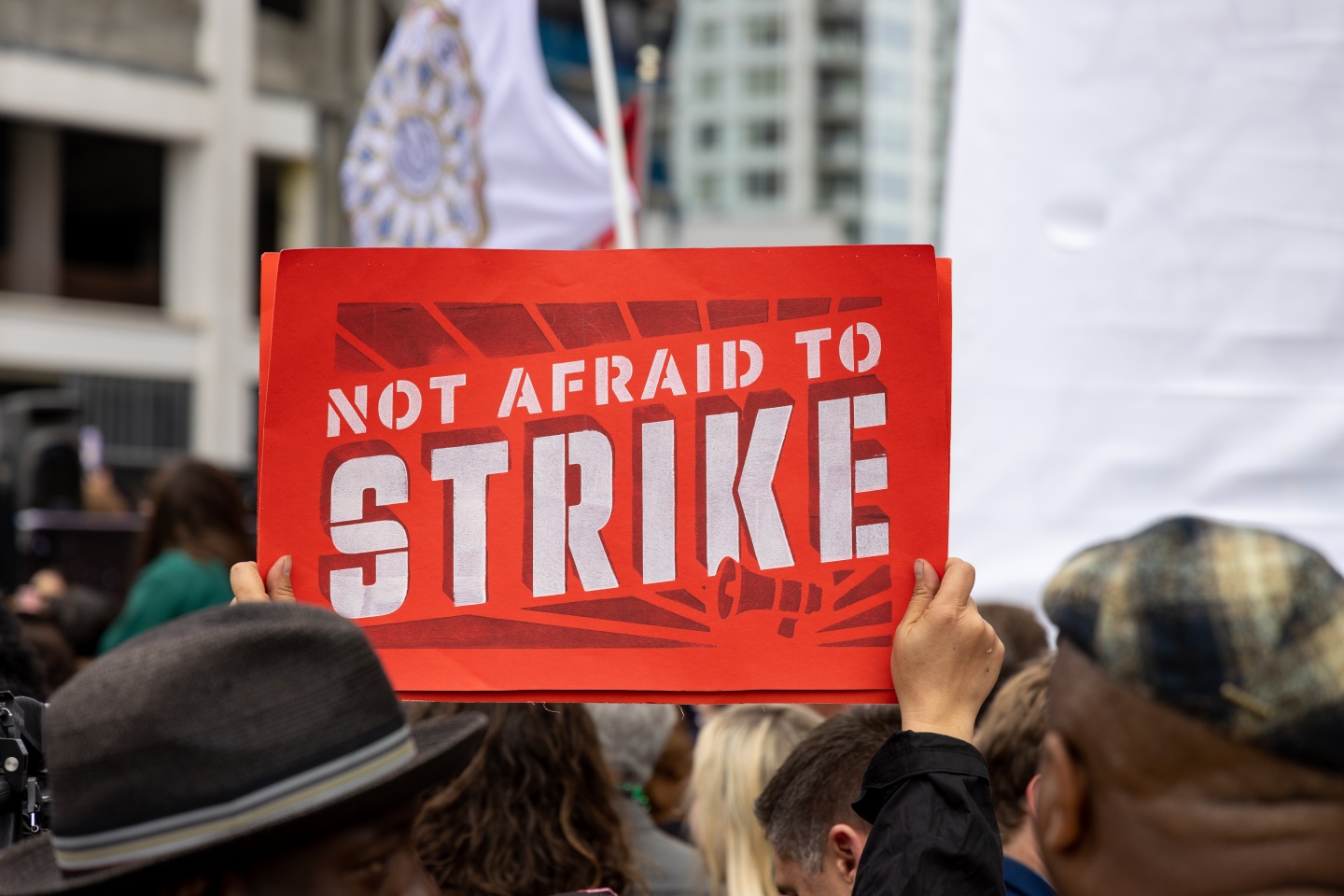
Earlier this month, several prominent U.S. gymnasts testified before Congress where they discussed the sexual abuse by Larry Nassar. But what received much of the media attention was the fact that the FBI failed to adequately investigate the complaints made into Larry Nassar’s sexual abuse. Sadly, what the U.S. gymnasts described is all too common, and parallels investigations into wrongdoing in other contexts, such as workplace investigations into sexual harassment and hostile work environment.
Insufficient Investigations into Workplace Misconduct
Whether it’s office bullying, sexual harassment or some other form of discrimination, victims of misbehavior in the employment setting sometimes learn that their complaints do nothing to stop the unwanted conduct.
Many employers have special reporting procedures for employees who feel they are the victim of discrimination. Sometimes, these policies resolve the situation after a good faith investigation takes place. But in many instances, the employer’s response does nothing to stop the harassment. Or, it makes things worse for the complaining employee when they suffer retaliation.
Occasionally, an employee will also report the workplace conduct to law enforcement. But too often, there’s only a cursory investigation. Or even after a thorough investigation, no formal charges are brought. So this begs the question: why are employee complaints about improper behavior at work so unsuccessful in bringing about meaningful changes?
Why Investigations at Work Often Come Up Short
If an employee files a complaint about discrimination or harassment at work, it should fix the problem. But in some instances, it will protect the accused, even if the allegations are credible or verifiable. There are a multitude of reasons why this occurs.
First, the investigator(s) have a conflict of interest. This could present itself as the investigator being subordinate to the accused in some way. For instance, the accused is the CEO who’s being interviewed by the director of human resources. And the CEO has full authority to fire the director at any time and for any reason.
As for investigations conducted by outside counsel, it might be the accused that has an influence on which law firm the company hires for the next investigation needed by the company.
Second, the person or group being accused is very successful. Put another way, the sexual harasser or workplace bully is the company’s golden goose and the company doesn’t want the accusations to cut off the company’s supply of golden eggs.
Third, there’s no established protocol or criteria for investigations. For example, how much evidence does the investigator need to uncover to result in the company taking action against the accused? Is one credible witness enough? How about three? Or maybe it’s just one person’s statement plus an email or text message? This discretion gives company leadership a lot of wiggle room in how they choose to respond to an investigation’s findings.
Fourth, the accused is very powerful. Whether they’re liked by many or they’re the person who signs everyone’s checks, companies are hesitant to take action against powerful individuals. It could lead to a nasty lawsuit filed by the harasser after they get fired. And should the company win the case, a lot of dirty laundry could be aired in public. Or, if the accused is a key figure for the company, having them leave could result in the company’s demise.
Fifth, many investigations are secret. This lack of transparency makes it easier for company executives or board members to make their own decisions on how to handle the complaint, regardless of what an investigation turns up.
Sixth, the company culture supports the accused’s behavior. Blizzard Activision’s sexual harassment and discrimination lawsuit is a perfect example of this.
Seventh, even if there’s a reasonable investigation and the victim is somehow made whole, the abuse, harassment, discrimination or other misconduct can continue. With nondisclosure agreements and forced arbitration, what can happen is that the company offers the victim a settlement large enough to make his or her allegations quietly go away. Even though it’s now more expensive, to pay to silence victims of sexual harassment, such hush money agreements still exist.
As for criminal investigations coming up short, that may be a bit less common, given the more public nature of the process. However, they can still contain failures to properly conduct investigations. Just ask former FBI agent Michael Langeman.
Because the more public nature of a criminal investigation can mean it’s easier to ruin the reputation of someone who’s falsely accused, police may be less likely to conduct a thorough investigation if they don’t find the accuser to be credible or want to protect the accused.
Then there’s the fact that there’s the much higher burden of proof to obtain a criminal conviction. So an investigator may believe the victim 100%, but if the investigation turns up insufficient evidence to bring charges or support a conviction, the investigation will likely lead nowhere.
Finally, as with company investigations, there can also exist a conflict of interest. According to the Washington Post, Jay Abbott, who was Agent Langeman’s former boss, tried to get a job at the Olympic Committee.
What Should Employees Do?
If you’re facing discrimination or harassment at work, you’re in a very tough position. You know that you should probably file a complaint, but you worry that it will just lead to a sham investigation or won’t stop the abuse you have to endure. And you also fear that it could lead to retaliation.
Unfortunately, these are valid worries. But unless you’re 100% convinced that you’re going to do nothing about what’s happening to you and continue going to work like nothing’s wrong, you should consider doing one or more of the following things.
Filing a Complaint at Work
If your employer has a formal reporting procedure in place, strongly consider taking advantage of it. There’s always the chance it could stop the unwanted behavior. But even if it doesn’t, filing a complaint is still a good idea because it’s one of the best ways to protect your legal rights. There are at least two reasons for this.
First, it can create a retaliation cause of action. If you decide to sue your employer for discrimination and retaliation, you can lose the underlying discrimination claim but still win your retaliation claim. One of the hardest parts of winning a retaliation claim is proving your employer took adverse action against you because you complained or reported unlawful conduct.
It’s a difficult argument to make because employers can often argue, “oh, I didn’t know the harassment was taking place, so that’s why it continued…” So when there’s no formal complaint filed by a victim of harassment, it’s a lot easier for employers to feign this ignorance. This ended up being an issue with NBC and its handling of the Matter Lauer allegations.
Second, reporting the behavior counters the Faragher-Ellerth defense. Without getting into the nitty-gritty of this legal defense, it basically says that an employer can avoid liability for the sexual harassment of an employee if the victim didn’t take advantage of the employer’s sexual harassment reporting procedures.
Consult with an Employment Attorney
Oh, I know what you’re thinking, “of course, here’s an attorney telling me to hire an attorney.” This particular piece of advice is not about trying to drum up business. With careful research, there’s a fair chance you can handle your employment situation without hiring an attorney.
But there are some situations where it’s a good idea to have an employment lawyer hear your situation to confirm what your legal options are. Many attorneys in the employment profession will offer free case reviews to do just that – identify your legal options. It’s only if you want the attorney’s help to proceed with a particular legal option will you have to hire them.
And in situations where you already know what your options are, you may not fully understand the consequences of taking one path over another. For instance, if the harassment or discrimination is so bad you want to quit, should you?
Maybe, but only you can decide if the work environment is so hostile, you can’t take it anymore. However, you need to understand that by quitting, it could affect your ability to get unemployment and weaken any legal arguments (like wrongful termination) you might want to make in the future.
Or perhaps you want to stay at work, but slowly build a case for a future lawsuit. Having an attorney to help you avoid any missteps along the way and gather evidence you’ll later use during litigation is invaluable.
If you choose to resign, your experiences with the illegal behavior at work could offer you leverage during negotiations for a severance package. A lawyer can give you an idea about how to proceed with these options.
Finally, if you choose to litigate, there could be certain steps you need to take before having your day in court. A prominent example is filing a complaint with the U.S. Equal Employment Opportunity Commission (EEOC) or your state’s equivalent state agency.
You don’t have to have a lawyer to file these complaints, but there are important deadlines you don’t want to miss. A free case review with an employment lawyer will usually warn you about these deadlines.
Summing It Up
Dealing with harassment or discrimination at work is often a lose-lose proposition for many employees. One reason is because filing a complaint with the employer or the police often leads to nothing being done about the problem. Despite this, it’s usually a good idea to file a workplace complaint to create a paper trail and protect your future ability to litigate, should you decide to do that.




